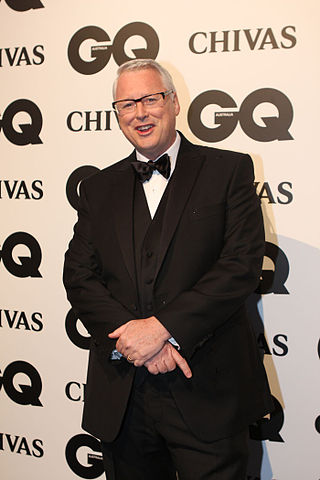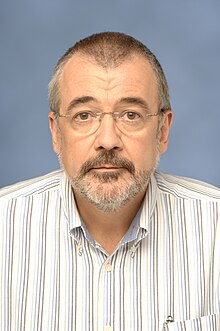
George Edward Negus AM is an Australian journalist, author, television and radio presenter specialising in international affairs. He was a pioneer of Australian TV journalism, first appearing on the ABC’s groundbreaking This Day Tonight and later on 60 Minutes. Negus was known for making complex international and political issues accessible to a broad audience through his down-to-earth, colloquial presentation style. His very direct interviewing technique occasionally caused confrontation, famously with Margaret Thatcher, but also led to some interviewees giving more information than they had given in other interviews. Recognition of his unique skills led to him hosting a new ABC show, Foreign Correspondent, and Dateline on SBS. He often reported from the frontline of dangerous conflicts and described himself as an “anti-war correspondent” who wanted people to understand the reasons behind why wars were senseless. He was awarded a Walkley Award for Outstanding Contribution to Journalism. He presented 6.30 with George Negus on Network Ten. He remains a director of his own media consulting company, Negus Media International.

Foreign Correspondent is a weekly Australian documentary series and current affairs program screened on the ABC, Tuesdays at 8:00 pm (AEDT), Wednesdays at 11.30am as well as on ABC News on Saturdays at 6.30pm. It is also available on iView or on the Foreign Correspondent website. ABC News also repeats the program on Thursdays at 2.30pm if parliament is in recess. The program premiered at 7:30 pm on Saturday 14 March 1992. Its aim is to provide information about the happenings in other countries either on the light side of life or during crises.

Anthony William Jones is an Australian television news and political journalist, radio and television presenter and writer.
Sally Jane Sara AM, is an Australian journalist and TV presenter.
Graham Hunt Davis is a Walkley Award and Logie Award winning Fijian-born Australian journalist. He hosts a weekly Australian television program, The Great Divide on the Southern Cross Austereo TV Network, and is a consultant to the Washington-based global communications company Qorvis on its Fiji account.
Mark Davis is an Australian investigative journalist and lawyer, best known for his work on Dateline for SBS TV, where he is currently a co-presenter and video journalist.
Lisa Joy Millar is an Australian television news presenter and journalist.
Jonathan Holmes is an English-born Australian newspaper and former television journalist, actor and producer who was the presenter of the ABC1 weekly programme Media Watch from 2008 until July 2013.
Richard Alan Ackland is an Australian journalist, publisher and lawyer, who has won many awards for his reporting.

Aaron Kearney is a multi-award winning broadcaster, journalist, sports commentator and the 44th MEAA Prodi Journalist of the Year.
Mark Willacy is an Australian investigative journalist for the Australian Broadcasting Corporation (ABC). He, along with ABC Investigations-Four Corners team, won the 2020 Gold Walkley for their special report Killing Field, which covered alleged Australian war crimes. He has been awarded six other minor Walkley awards and two Queensland Clarion Awards for Queensland Journalist of the Year. Willacy is currently based in Brisbane, and was previously a correspondent in the Middle East and North Asia. He is the author of three books. In 2023, Willacy was found to have defamed Heston Russell, a former special forces commander, after making unproven allegations of war crimes.

Norman Swan is a Scottish-born Australian physician, journalist and broadcaster.
Ian McPhedran is an Australian author and retired journalist. Having begun his journalism career at The Canberra Times, from 1998 he worked as a defence writer for the News Corp Australia mastheads, including the Herald Sun, The Daily Telegraph and Northern Territory News, before announcing his retirement in January 2016. HarperCollins has published eight books by McPhedran, who won a Walkley Award in 1999.

Sean Christopher Dorney AO MBE CSM FAIIA is an Australian journalist, foreign correspondent, and writer with an extensive career covering the Pacific with a particular focus on Papua New Guinea. He was the Pacific and PNG Correspondent of the Australian Broadcasting Corporation on and off from 1975 to 2014.
James Massola is an Australian journalist and author, currently the National Affairs Editor for The Age and The Sydney Morning Herald.
Tim Palmer is an Australian journalist, best known for his work as a foreign correspondent with the Australian Broadcasting Corporation.
John Lyons is an Australian journalist. He has been the Executive Editor of ABC News and Head of Investigative Journalism for the Australian Broadcasting Corporation since 2017. He was previously associate editor (digital) and a senior reporter at The Australian, editor of the Sydney Morning Herald, executive producer of the Sunday program on the Nine Network and a foreign correspondent in the United States and Israel.
Jane Singleton is an Australian broadcasting and print journalist, company director and public relations professional.
Avani Dias is a Sri Lankan Australian journalist and radio presenter. She was the Australian Broadcasting Corporation (ABC)'s international foreign correspondent for South Asia, based in New Delhi until April 2024. She will join Four Corners as a reporter after returning to Australia. Dias presented the current affairs program Hack on youth radio station Triple J from 2020 to 2021, after succeeding Tom Tilley at the end of 2019.
Stephen McDonell is a journalist who has been BBC's China correspondent since 2016. He is based in Beijing. He was previously the Australian Broadcasting Corporation's China correspondent from 2006 to 2015.






